 MyCatBreeds
MyCatBreeds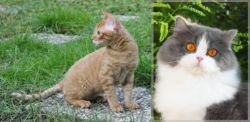 German Rex is originated from Germany but British Longhair is originated from United Kingdom. Both German Rex and British Longhair are having almost same weight. Both German Rex and British Longhair has same life span. Both German Rex and British Longhair has same litter size. German Rex requires Low maintenance. But British Longhair requires Moderate maintenance
German Rex is originated from Germany but British Longhair is originated from United Kingdom. Both German Rex and British Longhair are having almost same weight. Both German Rex and British Longhair has same life span. Both German Rex and British Longhair has same litter size. German Rex requires Low maintenance. But British Longhair requires Moderate maintenance
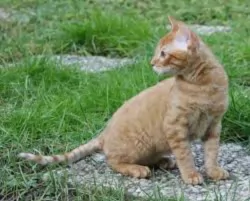 The cat originates from Germany and was developed in about the 1950s. Dr. Rose Scheuer-Karpin found a frizzy-haired black and white cat and chose to breed her.
The cat originates from Germany and was developed in about the 1950s. Dr. Rose Scheuer-Karpin found a frizzy-haired black and white cat and chose to breed her.
So as to fix the frizzy hair gene, it was decided to mate the cat further and this was the start of the German Rex.
It was later crossed with the Cornish Rex. The cats were recognized by the International Feline Foundation, but the Cat Fanciers' Association still associates the breed with the Cornish Rex.
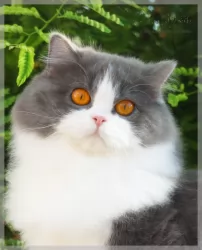 The British Longhair cat hails from Great Britain. The cat is a longer-haired variety of the British Shorthair.
The British Longhair cat hails from Great Britain. The cat is a longer-haired variety of the British Shorthair.
These British Shorthairs were interbred with imported long-haired varieties with the idea being to bring about a cat that was more compact and stout and with a rounder face. Today the British Longhair is an established longhair breed in its own right.
 This is a medium-sized, muscular domestic cat with a well-developed chest. The cat can weigh between 3 and 6kg.
This is a medium-sized, muscular domestic cat with a well-developed chest. The cat can weigh between 3 and 6kg.
The legs are fairly long and slender but strong and the tail is thick and furry with a rounded tip. The head is round and the ears are large. The eye colors are always related to the coat color. The coat is short and silky and in many colors and it has a tendency to curl.
These are friendly cats that form a strong bond with their human owners, although they are friendly towards strangers too.
They’re intelligent, lively, and playful too and will fit in well to homes with children.
Because of their playful nature, you want to ensure you provide them with lots of entertaining, stimulating toys.
They’ve got balanced personalities and are known for being sociable, adapting to the lifestyles they find themselves in. They will also get on well with other pets in the home, and enjoy being both indoors and outside.
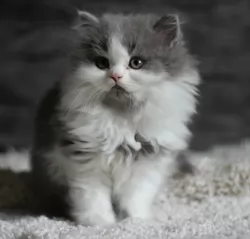 The beautiful British Longhair cat is a medium-sized feline, leaning towards being a large cat with semi-long hair.
The beautiful British Longhair cat is a medium-sized feline, leaning towards being a large cat with semi-long hair.
The cat, whether males or females can weigh between 4 and 8kg. It is robust and muscular with round paws and legs of medium length. The ears are smallish and round at the tips.
The color of the eyes can be different - browns, greens, blue, and grey. The colors of the coat can be blue, white, black, grey, calico, tabby, bi-color and tortoiseshell. The coat can be a solid color or it can be in different patterns. The fur is always medium length and silky with an undercoat.
The British Longhair has much the same personality as the British Shorthair – being calm, amicable cats who appreciate their human owners.
They’re adaptable cats too and are willing to get along with any other pets in the home as well. They’re playful and affectionate with their owners but don’t particularly like being held for too long.
Even though this is a docile cate, it is intelligent and will require mental stimulation. You’ll need to invest in a few ‘intelligent’ type of toys to keep your cat physically and mentally active. Take a look at the kinds of games where your cat will be required to ‘hunt’ for his food.
 Your German Rex is everything you want in a pet. He is a cat that loves his human family and is prepared to offer loyalty and love in exchange for the same.
Your German Rex is everything you want in a pet. He is a cat that loves his human family and is prepared to offer loyalty and love in exchange for the same.
He is adaptable and undemanding. Before you invest in such a cat, understand that interaction from you is highly important, so if you don’t have time for an adult pet, it would be kinder not to get this particular cat breed as they crave lots of attention,
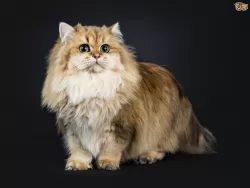 The British Longhair makes an awesome pet and can live happily with children, other dogs, and cats and all of his human family.
The British Longhair makes an awesome pet and can live happily with children, other dogs, and cats and all of his human family.
He isn’t a cat that wants to be picked up too often – he is independent but is willing and loving towards his humans.
For the friendship he offers, you’ll want to reward him for the joy he brings by providing well for him.
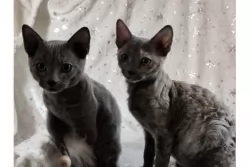 With excellent care and lots of love and attention, your German Rex can reach up to 17 years of age. They aren’t prone to any particular diseases, but diet plays a massive role in their health.
With excellent care and lots of love and attention, your German Rex can reach up to 17 years of age. They aren’t prone to any particular diseases, but diet plays a massive role in their health.
Remember that obesity is a major disease and it in itself can contribute to a host of other illnesses in cats and shorten its life. Excess weight contributes towards arthritis and diabetes and just losing a bit of weight can contribute towards increased mobility.
Dental disease is a common, chronic problem and you need to ensure your pet’s diet promotes dental health. It can be extremely stressful for your cat to have his teeth brushed, but in the case of chronic dental infection, get your pet to a vet.
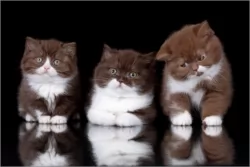 These beautiful cats can be prone to obesity if kept as an indoor cat only and a cat that doesn't get enough exercise.
These beautiful cats can be prone to obesity if kept as an indoor cat only and a cat that doesn't get enough exercise.
Obesity, an accumulation of excess body weight, is a preventable disease. It is necessary to prevent this obesity as it can reduce your pet’s life expectancy. Fat tissue is active, secreting inflammatory hormones and creating oxidative stress on the body’s tissue, and this is precisely what contributes to so many diseases.
The British Longhair cat can also be prone to renal polycystosis. This disease is where many pockets of fluid or cysts form in the kidney and if they grow large over time they can actually interfere with kidney function and this can bring on kidney failure.
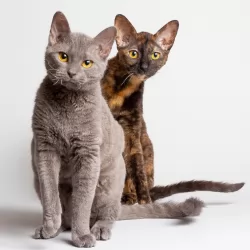 The German Rex is a shorthaired breed so a gentle brush once a week will be quite adequate.
The German Rex is a shorthaired breed so a gentle brush once a week will be quite adequate.
As you groom your German Rex, feel for any unusual lumps and make sure there are no signs of sores or rashes on your cat.
Check inside his ears for wax and dirt buildup and signs of redness for infection. If you don’t like to clean the inside of your cat’s ears, there are professional cat groomers and your local vet who will do this for you.
Make sure you feed your Rex the best cat food there is. When you look at the commercially cat manufactured foods there are, you’ll notice that there is dry kibble for cats as well as wet-type foods.
Through trial and error, you’ll learn what your cat likes, but your vet can offer valuable information on what is essential in a cat’s diet. Cats are carnivores so that means their diets have to be high in meat – protein – and low in carbohydrates.
Check out the best cat foods there are – the ones that have all the vitamins and minerals your cat requires to remain healthy.
Provide your cat with a litter box and keep it meticulously clean, scooping out the cat droppings every day and changing the actual sand or grit regularly.
Provide your cat with a warm bed, food and water bowls, toys, collar, and tag, climbing tree and scratching post.
Your kitten must start their first vaccines between 8 and 12 weeks of age. Your kitten will also be dewormed.
Take your cat to the vet when he is sick.
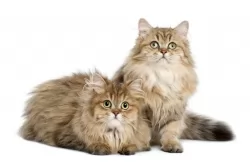 Because of the long hair, the British Longhair is going to require brushing as the coat can easily become matted, particularly as the coat thickens in preparation for winter.
Because of the long hair, the British Longhair is going to require brushing as the coat can easily become matted, particularly as the coat thickens in preparation for winter.
You’ll need to brush the hair once a week, but perhaps more in peak shedding times. A gentle but firm brushing keeps the cat’s fur and skin in good condition.
Have your pet spayed and neutered to avoid unwanted kittens.
Take your pet to the vet as soon as he is unwell. He is part of your family now and must be treated as such.
Provide your pet with human companionship especially if you buy one of the more social cats.
If your cat is an indoor pet, provide him with a litter box ad be prepared to clean it every day.
Provide a clean, dry, comfortable bed in a quiet area.
Provide your cat with stimulating toys.
Vaccinate your cat against the major feline diseases. Also, have your cat dewormed.
In terms of nutritional requirements, make sure that your British Longhair gets the very best cat food there is, whether you provide him with homemade food or you give him some of the excellent commercially manufactured cat foods there are.
There are wet- and dry foods and it's for your furry friend to decide which one he prefers.
Learn to read labels and make sure your cat is getting foods high in protein, after all, your cat is a carnivore.
Be sure that the food has lots of vitamins and minerals for his health. A cat also needs a constant supply of fresh, cool water.